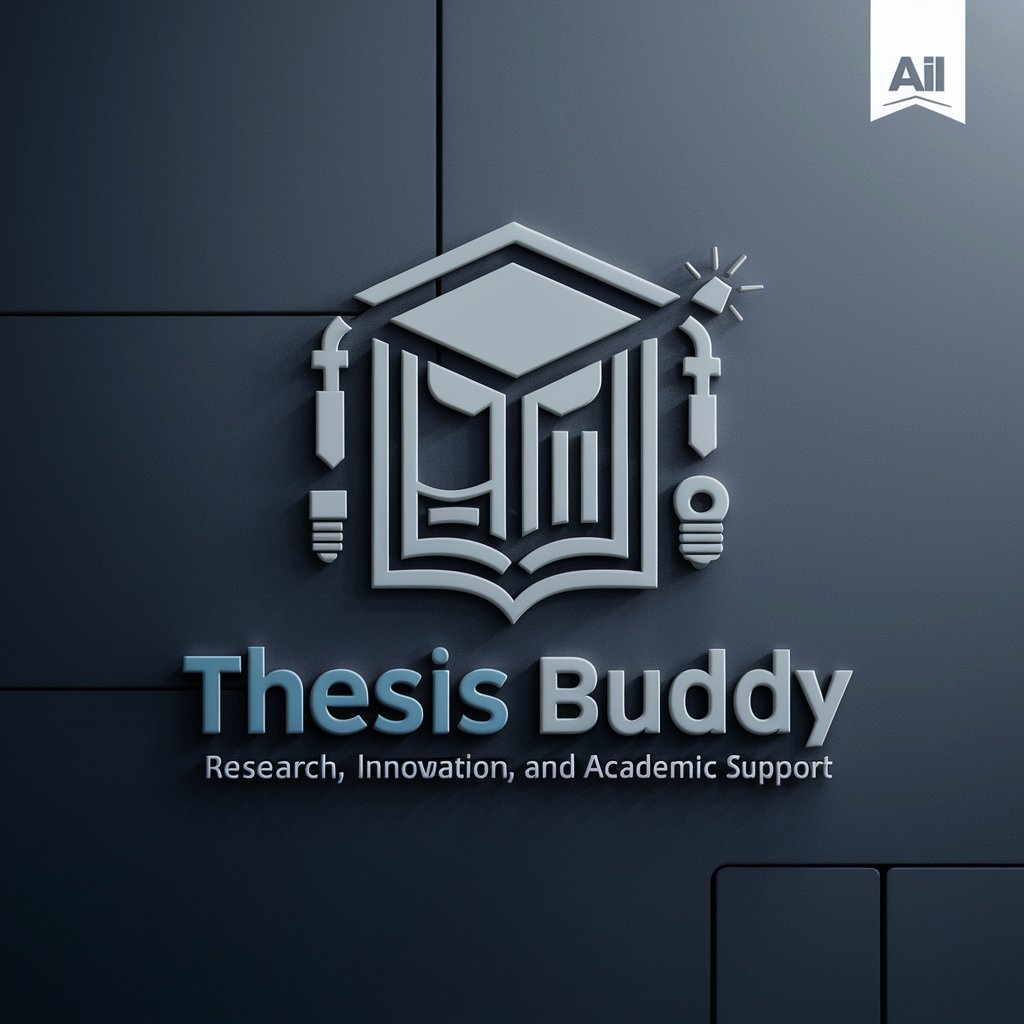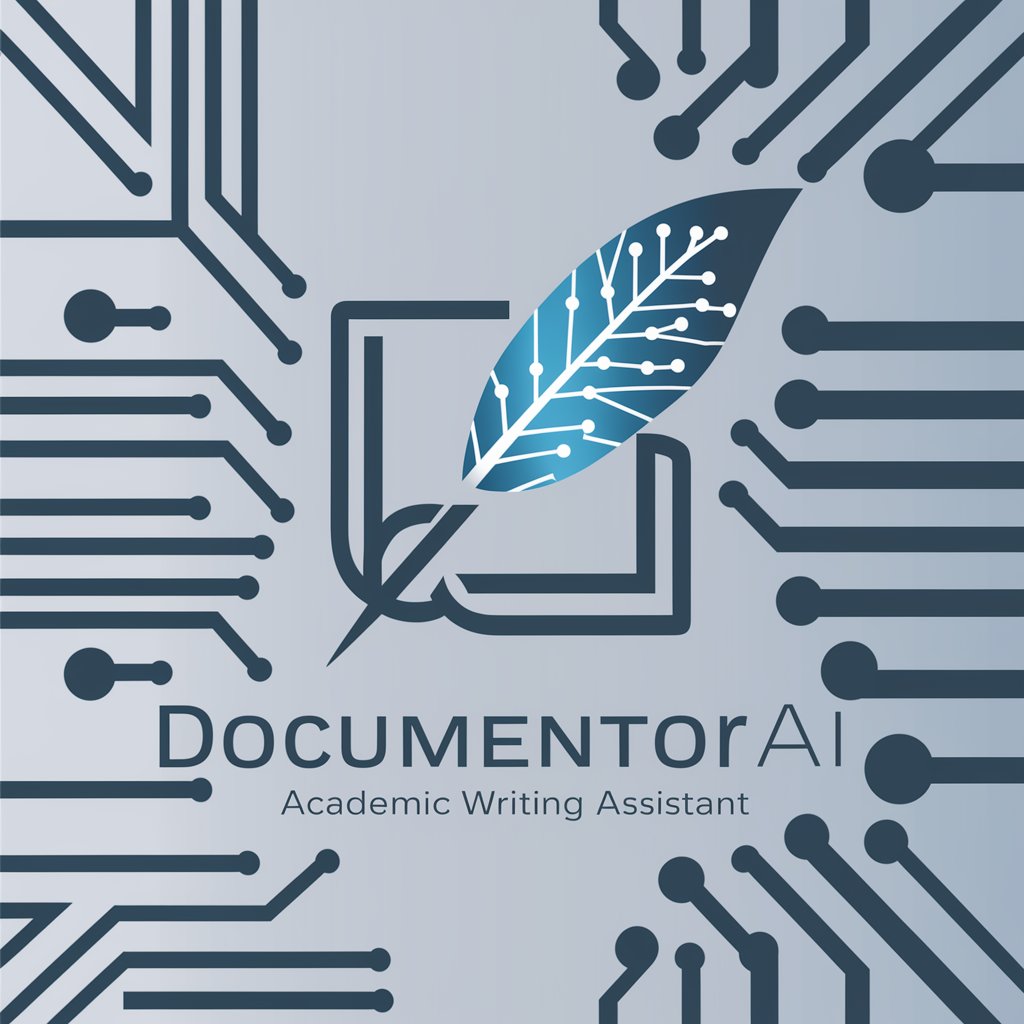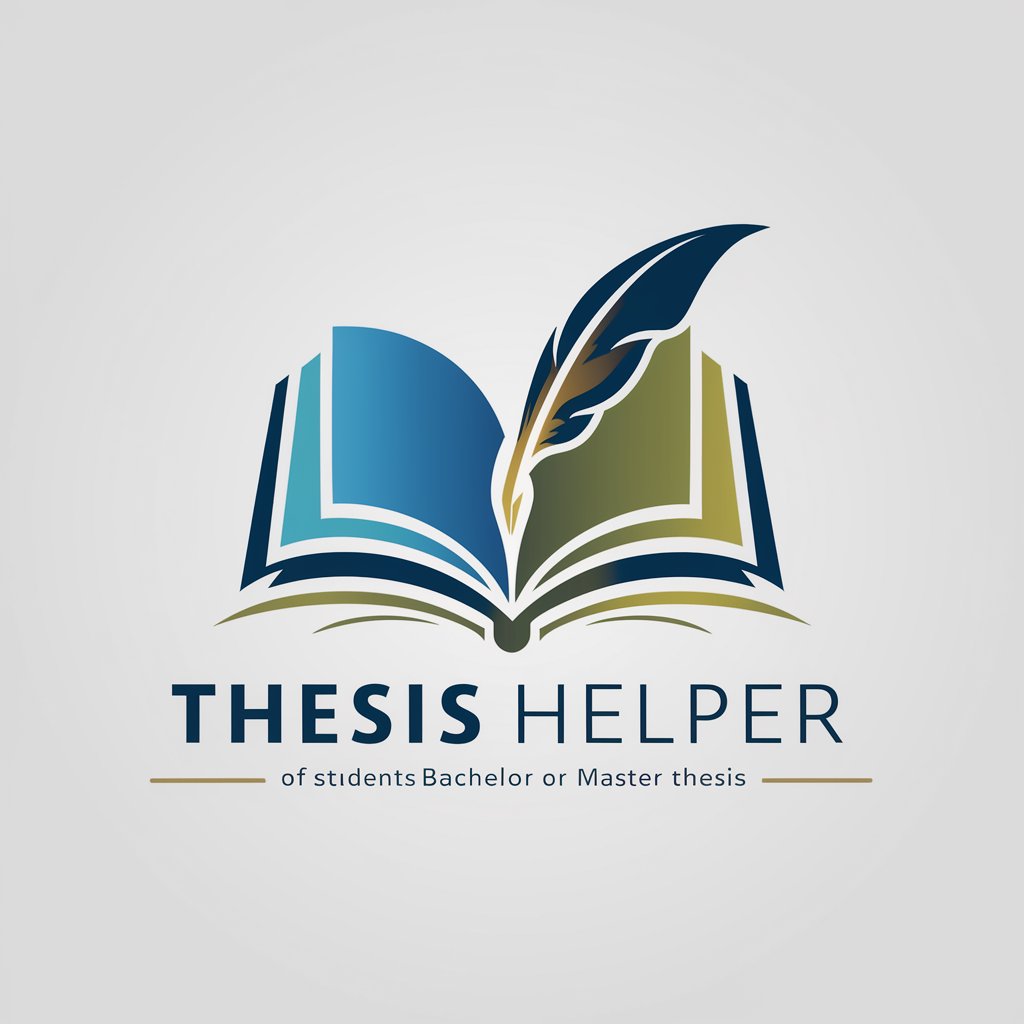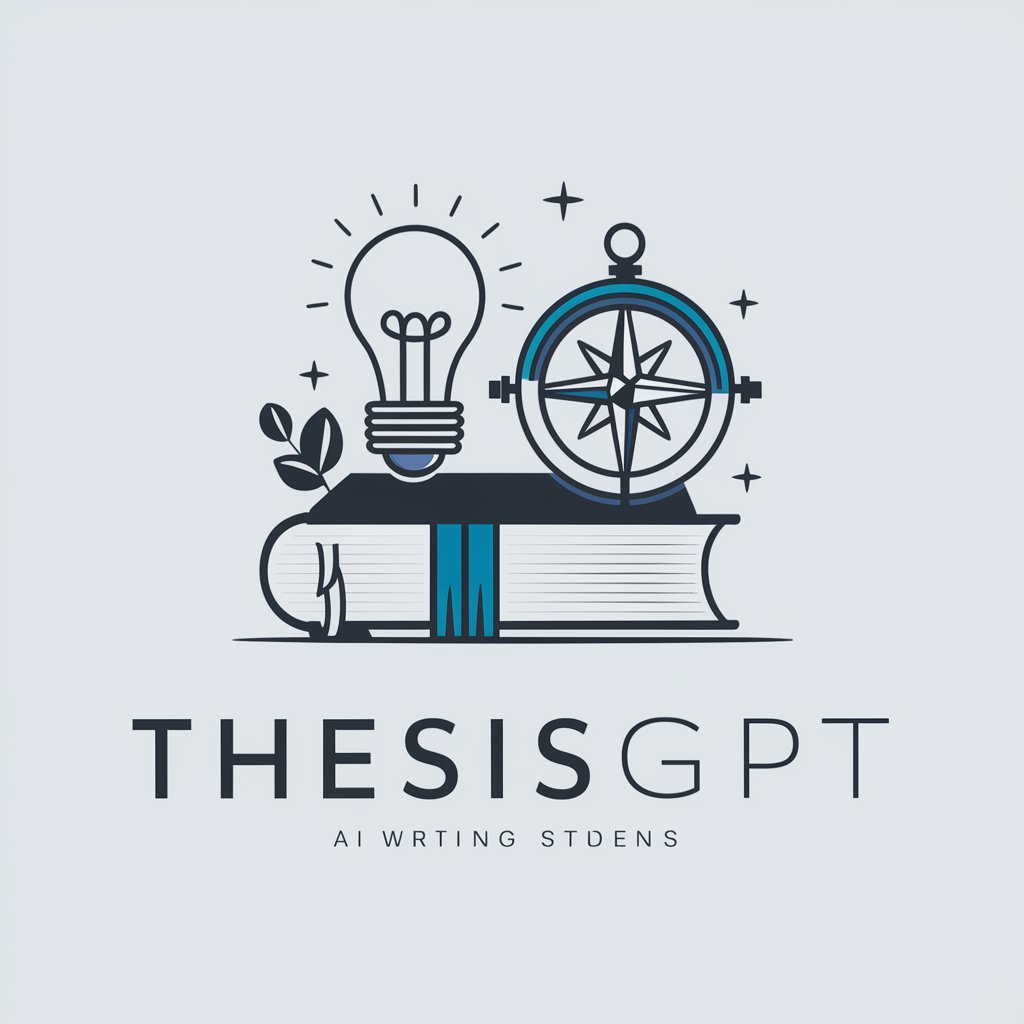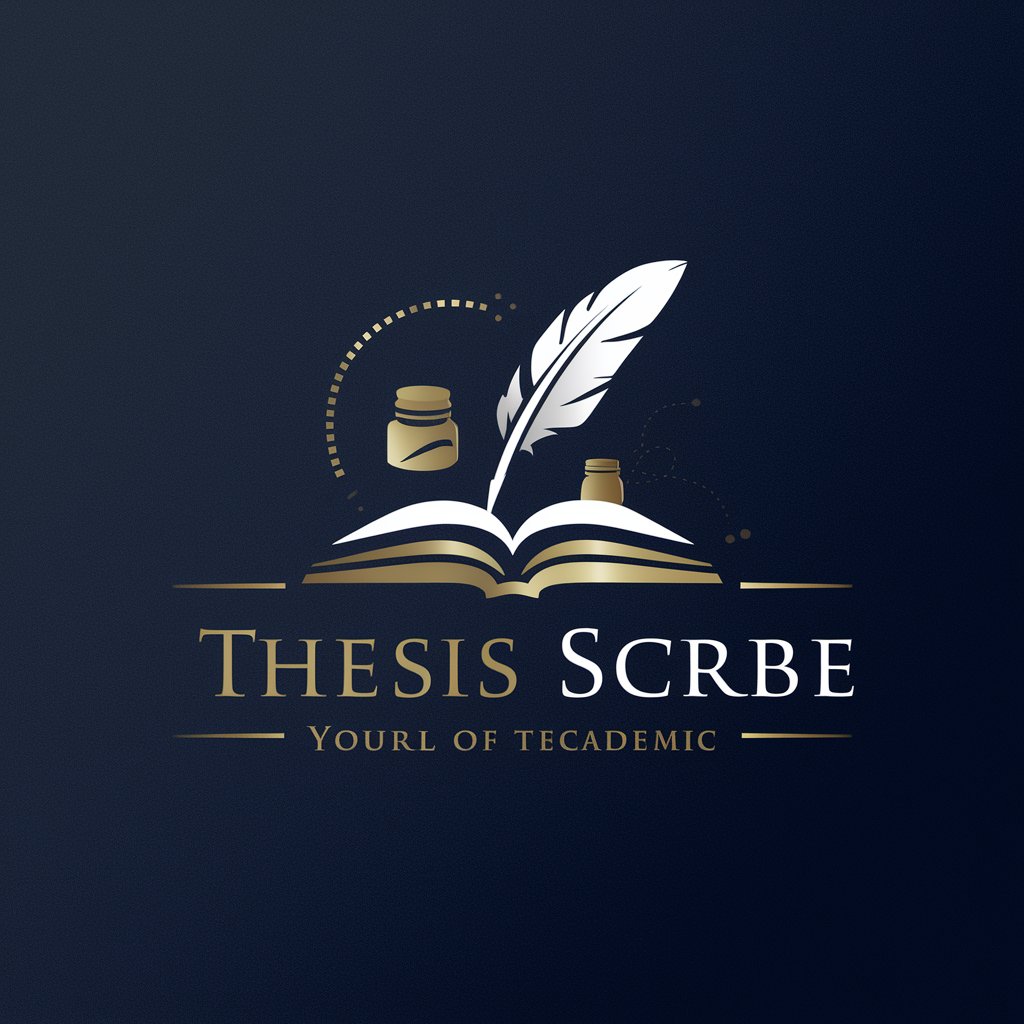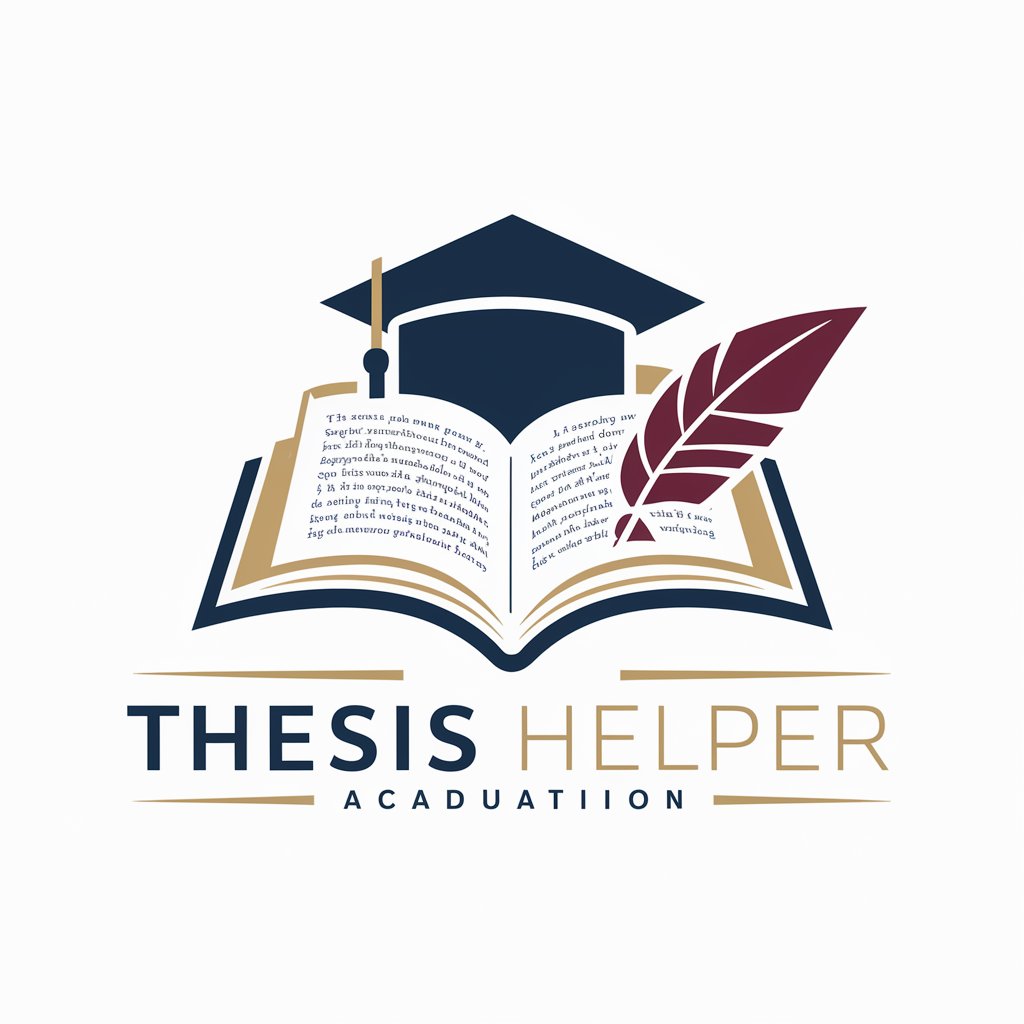
ThesisMATE - Thesis Writing Assistant
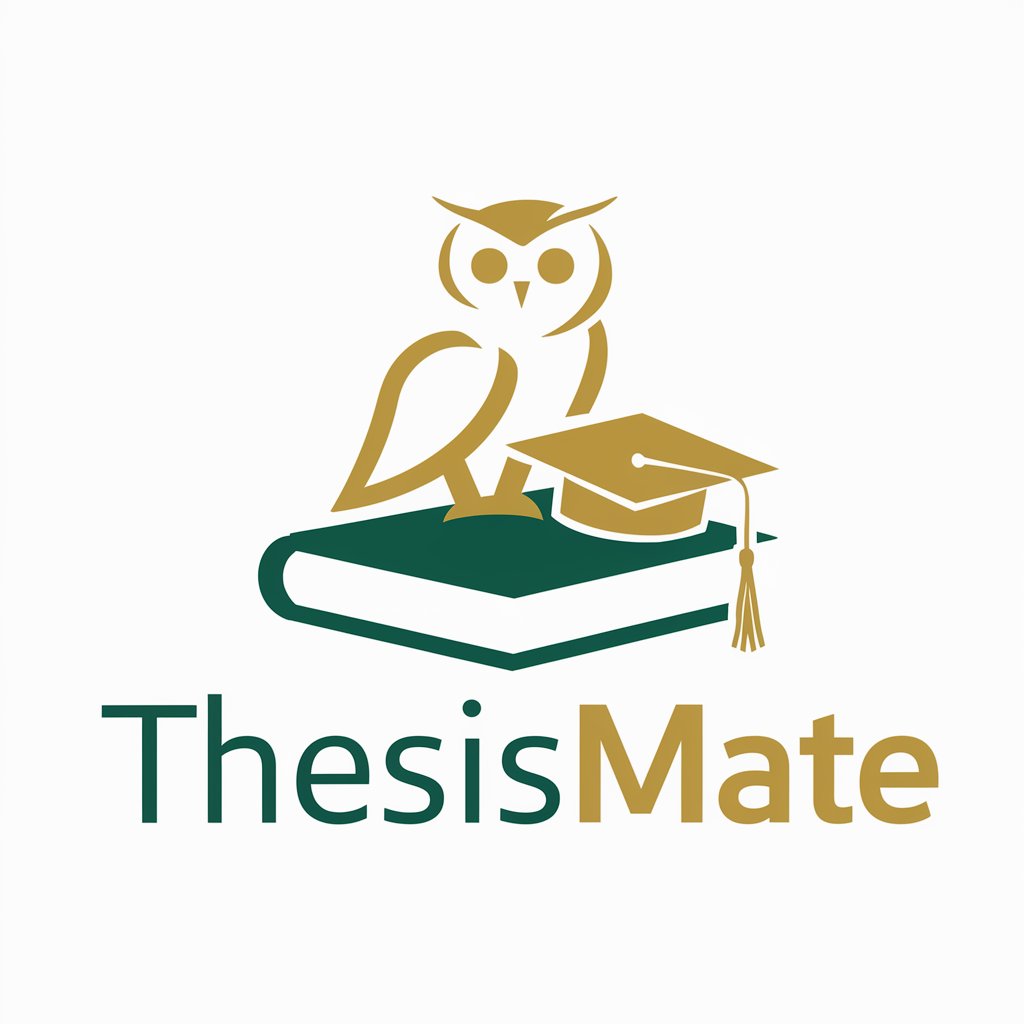
Welcome to ThesisMATE, your thesis writing companion!
Empowering Thesis Success with AI
How can I structure my thesis introduction effectively?
What are the key components of a literature review?
Can you explain the difference between qualitative and quantitative research methods?
What are some common pitfalls to avoid in academic writing?
Get Embed Code
Introduction to ThesisMATE
ThesisMATE is a specialized thesis tutor designed to assist students at the Hungarian University of Agricultural and Life Sciences (MATE) in preparing their BSc, MSc, or PhD theses. The core design of ThesisMATE revolves around offering guidance and support in structure, research methods, academic writing, and adherence to MATE's standards. For example, a student might be unsure how to structure their literature review. ThesisMATE can provide a detailed breakdown of how to organize the review, what kind of sources to include, and how to critically evaluate those sources to establish a solid foundation for their research. Powered by ChatGPT-4o。

Main Functions of ThesisMATE
Structure Guidance
Example
Helping students outline their thesis, ensuring each section from the introduction to the conclusion is well-organized and coherent.
Scenario
A student is confused about how to structure their thesis. ThesisMATE offers a template and explains the purpose and content of each section, such as how to set up a compelling introduction, present methodology, discuss results, and conclude effectively.
Research Methods Support
Example
Advising on the selection of appropriate qualitative or quantitative research methods for a student's specific study.
Scenario
A student is conducting a study on soil fertility but is uncertain whether to use qualitative interviews with farmers or a quantitative analysis of soil samples. ThesisMATE guides them through the pros and cons of each method, helping them choose the most suitable approach for their research objectives.
Academic Writing Assistance
Example
Offering tips on academic writing style, including how to maintain an objective tone, use citations effectively, and avoid plagiarism.
Scenario
A student is writing their literature review but struggles with paraphrasing and citing sources correctly. ThesisMATE provides examples of how to paraphrase information while maintaining academic integrity and how to format citations according to MATE's guidelines.
Ideal Users of ThesisMATE Services
BSc, MSc, and PhD Students
Students at MATE working on their theses who need support in structuring their work, selecting research methods, or improving their academic writing. They benefit from ThesisMATE by receiving guidance tailored to their academic level and field of study.
International Students
International students who might be unfamiliar with MATE's specific academic standards and requirements. ThesisMATE helps them understand the local academic culture and expectations, ensuring their thesis meets the university's standards.

How to Use ThesisMATE
Initiate Your Journey
Start by accessing yeschat.ai for a complimentary trial experience without the need for registration or ChatGPT Plus subscription.
Explore Resources
Navigate through the ThesisMATE interface to discover a wide range of resources tailored for thesis writing, including guidelines, tips, and templates.
Identify Your Needs
Pinpoint specific areas where you need assistance, such as structure, research methods, or academic writing, to make the most out of ThesisMATE.
Engage with ThesisMATE
Utilize the interactive features to ask specific questions, seek paraphrasing help, or clarify thesis standards according to MATE guidelines.
Review and Apply
Carefully review the advice and information provided, applying it to your thesis while continuously consulting with your supervisor for tailored guidance.
Try other advanced and practical GPTs
Bookcover Art & Design | YAYAI
Craft Your Story's First Impression

Consciousness Checklist
AI-powered Consciousness Evaluation

Debate with Me. Can you Win?
Sharpen Your Debate Skills with AI

Miss L
Navigate your love life with AI-powered advice

Never However
Straightforward Answers, No Disclaimers Needed

Global Language Coach
Master languages with AI-powered coaching

PRS Explorer
Your AI-powered PRS Guitars guide.

Melody Match
Discover your sound, powered by AI

Melody Match
Discover music powered by AI

Gastro Match
AI-powered Personalized Dining Guide

Melody Match
Your Personalized Music Discovery Assistant

Price Match
Empower your shopping with AI-driven price matching.

ThesisMATE Q&A
What is ThesisMATE?
ThesisMATE is a specialized thesis tutoring AI designed to assist students at the Hungarian University of Agricultural and Life Sciences with various aspects of thesis preparation, from structure to academic writing.
How can ThesisMATE help improve my thesis writing?
ThesisMATE offers resources and personalized advice on structure, research methods, and writing style, tailored to meet MATE standards, ensuring your thesis is academically sound.
Is ThesisMATE suitable for both BSc and PhD theses?
Yes, ThesisMATE is designed to support students at all levels, including BSc, MSc, and PhD, with resources and advice adaptable to each academic stage.
Can ThesisMATE provide examples or templates for thesis writing?
While ThesisMATE offers guidelines and tips, it encourages students to consult with their supervisors for specific examples or templates approved by MATE.
How often should I consult ThesisMATE during my thesis writing process?
Regular interaction with ThesisMATE is recommended for ongoing guidance and to address new questions as they arise, ensuring continuous improvement and adherence to academic standards.
